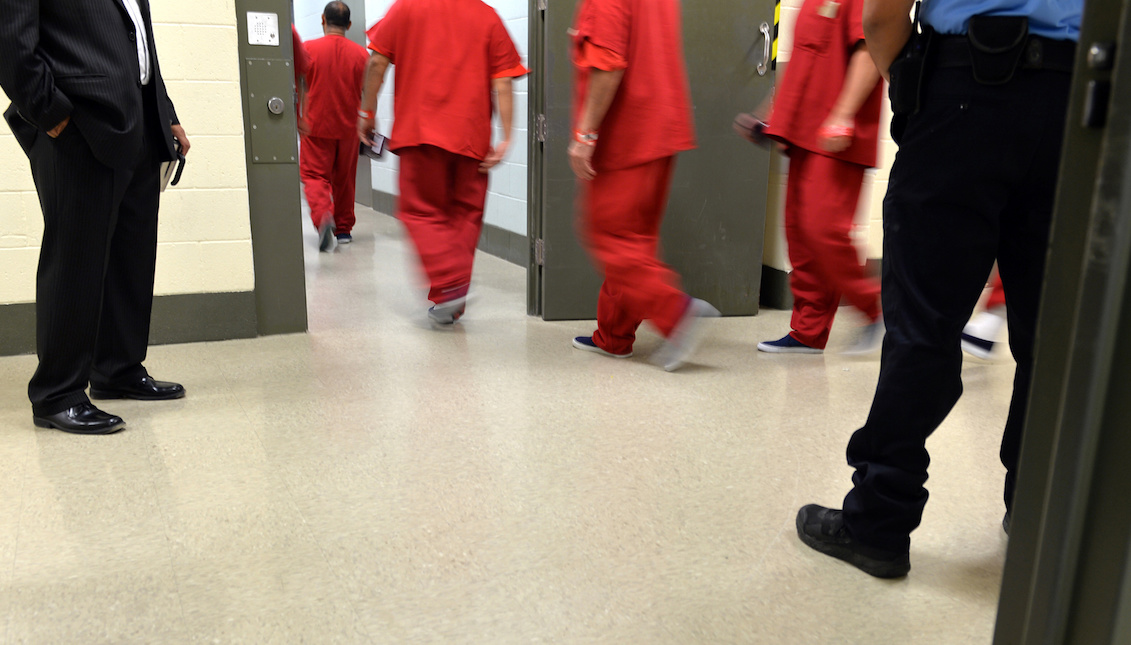
Detained immigrants may be a population severely contaminated with Coronavirus
Given the lack of testing and overcrowded conditions, undocumented immigrants in ICE centers become a breeding ground for COVID-19.
In a country where the Coronavirus pandemic has taken its toll, and where the populations most affected are precisely the communities of color, it is not surprising that immigrant detention centers are the ideal setting for the spread of the virus.
Over the past several years, the Trump Administration has made clear its steadfast refusal to treat immigrants as citizens or individuals in their own right, and the Immigration and Customs Enforcement Agency has echoed this motto.
Now, with over a million cases and 57,000 deaths, the reality of undocumented immigrants has taken a back seat in the media.
Perhaps that is why we hadn't heard much of what the Miami Herald reported this week, citing the few federal data that exist on the subject when it stated that at least 85% of the detainees tested nationally have tested positive for COVID-19.
"According to the U.S. Immigration and Customs Enforcement, 425 of its 30,737 detainees have been tested for the new coronavirus as of April 21," the newspaper said, with no further information available since then.
Although ICE's figures show that only 1.38 percent of its detainees have been tested, the fact that 85 percent of them have resulted positive, paints an appalling picture if projected epidemiologically, considering the critical conditions prisoners are subjected to.
The agency claims to be following the protocols of the Centers for Disease Control (CDC), "and in conjunction with recommendations from state and local health partners."
RELATED CONTENT
However, last week a federal lawsuit filed in Miami exposed the agency's negligence in establishing health protocols, putting thousands of detainees nationwide at risk.
ICE "directly contradicts [Centers for Disease Control and Prevention] guidance in several ways, including, most critically, that ICE officials describe cohorting as the planned response to a known COVID-19 exposure, not a practice of last resort," said Joseph Shin, an assistant professor of medicine at Weill Cornell Medicine, a founding member of the Cornell Center for Health Equity, and past medical director for the Weill Cornell Center for Human Rights, in a sworn statement that is part of the lawsuit.
In a similar move, the American Civil Liberties Union filed a couple of lawsuits last Friday in California demanding "a dramatic reduction in the prison population" and "a halt to all transfers of inmates to federal immigration detention centers amid increasing signs throughout the U.S. that jails and prisons are hot zones for the spread of the coronavirus," the Los Angeles Times said.
"It is not just those confined to jails, detention centers, and youth facilities who are in danger," Peter J. Eliasberg, chief counsel of the ACLU in Southern California, said in a statement. "Once the virus gets inside, the regular movement of staff and visitors in and out means that walls and razor wire can neither slow nor stop the viral spread to communities at large."
However, pending the court's decision, ICE has reported 317 infections among its detainees nationwide.
According to the Washington Post, in recent weeks there have been multiple cases of immigrants with chronic health problems –from diabetes to cardiovascular disease - who have sought "desperate relief in individual petitions," in some cases getting judges to order their release, but not without a titanic effort behind them that, on many occasions, has included protests and hunger strikes.










LEAVE A COMMENT: